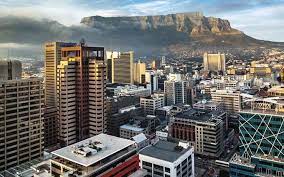
Exploring the Property Sector in Cape Town: A Macro Economic Overview
In this blog, we will provide an overview of the macroeconomic situation in Cape Town, compare it with the rest of South Africa, and explain why it is still the best city in South Africa to invest in, despite rising interest rates.
Macro Economic Situation in Cape Town
Cape Town has a thriving economy with a Gross Domestic Product (GDP) of over R364 billion (approximately USD 24.6 billion) and a growth rate of 2.9% (pre-Covid-19 pandemic) in 2019. The city is home to several key industries, including tourism, financial services, and the tech sector. The tourism industry is a major driver of Cape Town's economy, attracting over 10 million visitors annually, with a significant contribution to the city's revenue. The financial services sector is also an important industry in the city, with a significant presence of banking and insurance companies.
Another factor that has contributed to Cape Town's economic growth is its favorable infrastructure. The city has a well-developed road and transportation network, including a modern international airport. Cape Town is also home to several world-class educational institutions, including the University of Cape Town, attracting students from all over the world.
Comparison with the Rest of South Africa
When compared with other cities in South Africa, Cape Town stands out in terms of its economic growth and development. While the rest of South Africa has been struggling with low economic growth and high unemployment rates, Cape Town has managed to maintain a relatively stable economic environment, attracting investors and businesses to the city. This has resulted in an increase in property prices, making Cape Town one of the most expensive cities in South Africa.
Despite rising interest rates, Cape Town remains an attractive destination for investors, with high rental yields and the potential for capital appreciation. This is because the city's property market is driven by demand from both local and international buyers, with a high demand for rental properties in popular areas such as the Waterfront, Camps Bay, and Sea Point. This has resulted in a shortage of rental properties, leading to an increase in rental prices.
Why Invest in Cape Town?
There are several reasons why Cape Town is still the best city in South Africa to invest in, despite the rising interest rates. Firstly, the city has a stable economic environment, with a diverse range of industries, making it an attractive destination for investors. Secondly, Cape Town's property market is driven by demand from both local and international buyers, resulting in high rental yields and the potential for capital appreciation. Thirdly, Cape Town's natural beauty and favorable climate make it an attractive destination for tourists, increasing the demand for short-term rentals in popular areas.
Conclusion
In conclusion, the property sector in Cape Town is experiencing significant growth, attracting investors from all over the world. This growth can be attributed to several factors, including the city's favorable macroeconomic conditions, booming tourism industry, and natural beauty. Despite rising interest rates, Cape Town remains the best city in South Africa to invest in, with high rental yields, the potential for capital appreciation, and a stable economic environment.